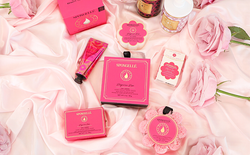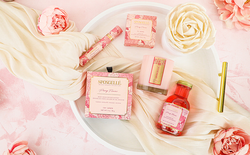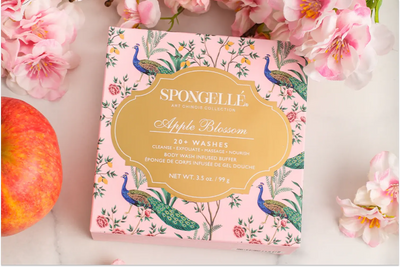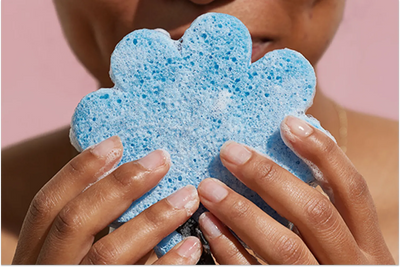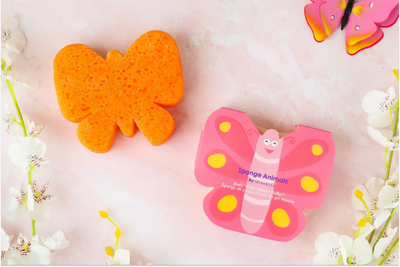Argan oil, or liquid gold depending on who you ask, is an ingredient commonly found in skincare. You may not know much about it besides that it's obviously an oil. However, it's much more than just oil. It provides many essential benefits to your skin, which is why it's been used for centuries.
We are going to go over all the ways argan oil can help your skin. You also find out how to use it on your face so you can have a healthy, natural-looking glow.
What Is Argan Oil?
Argan oil comes from the kernels that grow on the argan trees. These trees are native to Morocco, and it's one of the most coveted oils in the world because of its anti-aging properties.
Argan trees are mostly grown in the deserts of southwestern Morocco. It is vital to the land because it acts as a natural barrier, preventing soil erosion and protecting water supplies. However, these trees have been endangered by deforestation.
Locals have cut them down for building materials and firewood. The production of argan oil has reduced the number of trees cut down. They need them to keep growing to abstract the oil from the kernels.
Traditionally, people used this oil to treat a variety of diseases and skin conditions. It is also commonly used in cooking and has health benefits when ingested, like lowering cholesterol and arthritis relief. Eventually, Western countries caught on to what Morocco was using, and before long, it could be found in everything from shampoo to moisturizer.
Argan oil gets its nickname, "liquid gold," from being high in vitamins A, E, and C, as well as antioxidants and omega-6 fatty acids. These nutrients are all necessary for healthy skin and hair. There's just nothing like it, and that's why people keep seeking it out to use in their skincare routines.
The 10 Essential Benefits of Argan Oil
Argan oil may be what your skin is missing and could be your new secret weapon. There are endless benefits to using this magic oil. Here are 10 reasons to give it a try!
1. Protects Skin From Sun Damage
Women in Morocco have been using argan oil to protect their skin from sun damage for a long time. The antioxidants in this oil can help the skin fight damage from free radicals caused by sun exposure. Wearing it when you know you're going to be outside may help you prevent dark spots, premature wrinkles or fine lines, and hyperpigmentation. When you take care of your skin and decrease the amount of sun damage, you could be preventing skin cancer, like melanoma.
2. Hydrates Your Skin (and Hair!)
Argan oil is best known for its use as a moisturizer, although the two aren’t exactly the same. You can generally find it in lotions, soaps, and hair conditioners because of its hydrating properties. It is mostly due to its high levels of vitamin E. This vitamin is a fat-soluble antioxidant that can help your skin hold on to water, which keeps it moisturized.
Argan oil isn't just good for hydrating dry skin. It can also be used to protect your hair against heat damage. If you apply argan oil to strands of dry hair before styling, you can help prevent breakage. Argan oil may also help reduce hair loss, promote hair growth, or address dandruff when you massage it directly into the scalp.
3. Treats Skin Conditions
Argan oil has a wide range of medicinal benefits, including anti-inflammatory properties and antioxidant characteristics. They help relieve symptoms associated with inflammatory skin disorders such as psoriasis, eczema, and rosacea.
You will want to apply pure argan oil onto the inflammation for optimal results. Oral supplements may be the most effective treatment for rosacea. Of course, you always want to consult a dermatologist before using anything on your skin.
4. Treats Acne
Excess oil generated by hormones is a common cause of hormonal breakouts. Argan oil contains anti-sebum properties, which can help manage your skin's oil production and prevent clogging the pores. It can aid in treating acne-prone skin while also promoting smoother skin. Once you begin implementing argan oil into your skincare routine, it could take about a month to see results.
5. Helps With Infections
The treatment of skin infections is one of the traditional Moroccan uses for argan oil. Antibacterial and fungicidal properties are found in argan oil, which helps treat and prevent bacterial and fungal skin infections. Consult a doctor first before applying pure argan oil to the infected area twice a day.
6. Helps Skin Heal
Antioxidants are undeniably a key to good health. Argan oil has a powerful mix of antioxidants and vitamin E that may help wounds, scars, and cuts repair themselves faster. There are argan oil supplements that allow you to take full advantage of these antioxidants.
7. Helps Atopic Dermatitis
Atopic dermatitis is a common skin disorder that causes itchiness and redness. Argan oil can help relieve some of these symptoms. The calming effect of the oil is thanks to vitamin E, which is anti-inflammatory. One study found that participants treated with an oral vitamin E saw a considerable reduction in symptoms.
8. Anti-Aging Benefits
Argan oil has also been used as an anti-aging treatment for a long time. Researchers discovered that combining oral and cosmetic argan oil resulted in a considerable increase in skin elasticity. You can reap these anti-aging benefits by applying the oil daily to your skin.
Try Spongellé's Honey Blossom Body Lotion day and night. It is a perfect combination of shea butter, argan oil, avocado oil, and vitamin E.
9. Oil Control
Everyone's skin isn't the same, and some people's skin is inherently oilier than others. Those who do frequently go to great lengths to remove the greasy shine that can develop.
It may seem counterproductive to apply oil to get rid of oil. However, argan oil's sebum-reducing properties can aid in the reduction of overall sebum and oiliness in the skin. Using this oil twice daily may help you reduce sebum activity and oiliness.
10. Helps Prevent and Diminish Stretch Marks
Whether it's from pregnancy or weight gain, stretch marks can happen to anyone. Since we know argan oil can help with skin elasticity due to its effect on collagen production, it can be beneficial in preventing stretch marks.
Using argan oil can also help reduce the appearance of stretch marks. For best results, apply the oil as soon as you start to see the stretch marks form. Continue to use it twice a day to help fight those lines. You can try Spongellé's Coconut Verbena Body Lotion, which contains argan oil. This emollient formula will provide your skin with just the treatment it needs.
Using Argan Oil On Your Face
Adding argan oil to your skincare routine can help you give your skin a healthy glow. You may be wondering if you need to swap out your moisturizer for argan oil. However, oil isn't a moisturizer.
Your skin can benefit from both forms of hydration. Oil is occlusive, which helps keep water in your skin. Meanwhile, moisturizer adds moisture to your skin.
When using argan oil, it's best to apply it to slightly damp skin. It will help trap some of that water in and give you more hydration. You can add a few drops to your hands or right onto your face. Next, gently press it into your skin.
Once it soaks in, your skin will have a subtle glow but won't look oily. Although if you struggle with oily skin and want a completely matte look, you can apply the argan oil at night. Your pillowcases may end up with some oil stains, so you may want to consider light-colored sheets.
After you apply the oil, you can add a moisturizer to finish off your skincare routine. Once you implement it on a regular basis, you will start to see a difference in how your skin looks and feels!
Argan Oil Tips Before Use
There are some possible side effects to using argan oil, although it's generally very safe and effective. Some people have sensitive skin that can have a negative reaction. Argan oil, and other oils, can cause irritation that looks like a rash or acne.
This reaction is more common in people that have tree nut allergies, even though argan oil comes from stone fruit and not a nut. If you're allergic to tree nuts, you can test out argan oil before applying it everywhere. Apply a small amount to a patch of skin and see how your skin reacts. If, after 24 hours, your skin looks normal, you're probably not going to have a reaction to argan oil.
There are also side effects that can occur when taking different oral argan oil supplements. It may cause things like appetite loss and bloat. If you start to notice negative side effects, stop taking it and consult a doctor.
In Summary
Argan oil is a great option for almost everyone if they want to improve their skin health. Its anti-aging and healing properties make it essential in many people's daily routines. Spongellé offers many products that feature argan oil and its benefits!
Sources:
Argan oil: the cost of the beauty industry's latest wonder ingredient | The Guardian
Argan Oil for Skin: Benefits and Uses for All Skin Types | Healthline
Argan Oil: Benefits, Side Effects, Dosage, and Interactions | Very Well Health
Vitamin E in dermatology | NCBI
The effect of dietary and/or cosmetic argan oil on postmenopausal skin elasticity | NCBI


